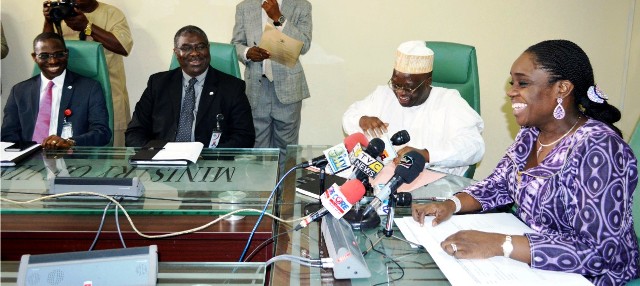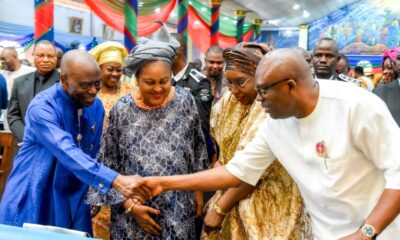Business
Airport Concession: No Job Losses, Minister Assures Avaition Workers

The Minister of State for Aviation, Capt. Hadi Sirika, has assured unions in the aviation industry that the proposed concessioning of the four airports will not lead to job losses.
Sirika gave the assurance at a meeting with the Air Transport Senior Staff Services of Nigeria (ATSSSAN) and the National Union of Air Transport Employees (NUATE) in Lagos.
The Federal Government had indicated its interest to concession the Lagos, Abuja, Kano and Port Harcourt Airports, toward increasing their capacity and efficiency.
Sirika disclosed that this was the first phase, noting that all the 22 airports owned by the Federal Government would be concessioned at the end of the second phase.
He said the meeting was to give the unions the opportunity to become members of the Concession Project Delivery Committee and enable them make inputs to better the process.
According to him, the government’s resolve to concession the airports is aimed at ensuring the establishment and sustenance of world-class standards in infrastructure development and service delivery.
He assured the unions that concession was not tantamount to privatisation or outright sale, explaining that the facilities being concessioned remained the properties of the Federal Airports Authority of Nigeria (FAAN) and Nigeria.
The minister said: “You see government has no plans whatsoever to sell national assets so it is sheer misconception.
“The truth is that government does not have money to invest and even if it could, with the sheer bureaucracy it could take 10 years and Nigerians are tired of what is on ground and want something new.”
He noted that private investors could provide funding for construction of world-class terminals in Nigeria under the build, operate and transfer process which would be beneficial to the country in the near future.
“The vision of the government is engage all stakeholders and people who have a stake in what we are doing, especially on the concessioning of our airports and other things we intend to do,” Sirika said.
He also said two committees had been inaugurated to mid-wife the process, stressing that there would be continuous engagement of stakeholders toward ensuring what was best for the country.
The President of ATSSSAN, Mr Benjamin Okewu, who spoke on behalf of the unions, noted that the unions were not in agreement with the concession of the revenue generating airports.
Okewu, however, agreed that concession done in other climes had resulted to increased revenue, building of infrastructure and other developments.
He also said the unions would meet to deliberate on their membership of the Project Delivery Committee which was extended to them by the minister and thanked him for the gesture.
Business
CBN Unveils NTNIA, NRNOA Accounts For Diaspora Nigerians’ Investment

Business
Diesel Price Hike: Manufacturers Opt For Gas

Business
TCN Debunks Grid Collapse, Says Lines Tripped

-

 Featured7 hours ago
Featured7 hours agoRSG Set For Armed Forces Remembrance Day
-

 News5 hours ago
News5 hours agoReps To Prioritise 2025 Budget, Tax Reform Bills -Speaker
-
Politics10 hours ago
Senate Decries MDAs’ Remittances To Federation Account In 2024
-

 Politics7 hours ago
Politics7 hours agoSupport For Tinubu: It’s About Good Governance, Not Politics – Oborevwori
-
Business8 hours ago
RSG Targets 24hrs Power Supply Through IPP
-
Sports5 hours ago
Organisers Increase Prize Money For ECOWAS Marathon
-
Business7 hours ago
Nigeria’s Power Generation Stagnates At 4,500MW
-
News4 hours ago
Rivers Dep Gov Bags Award

